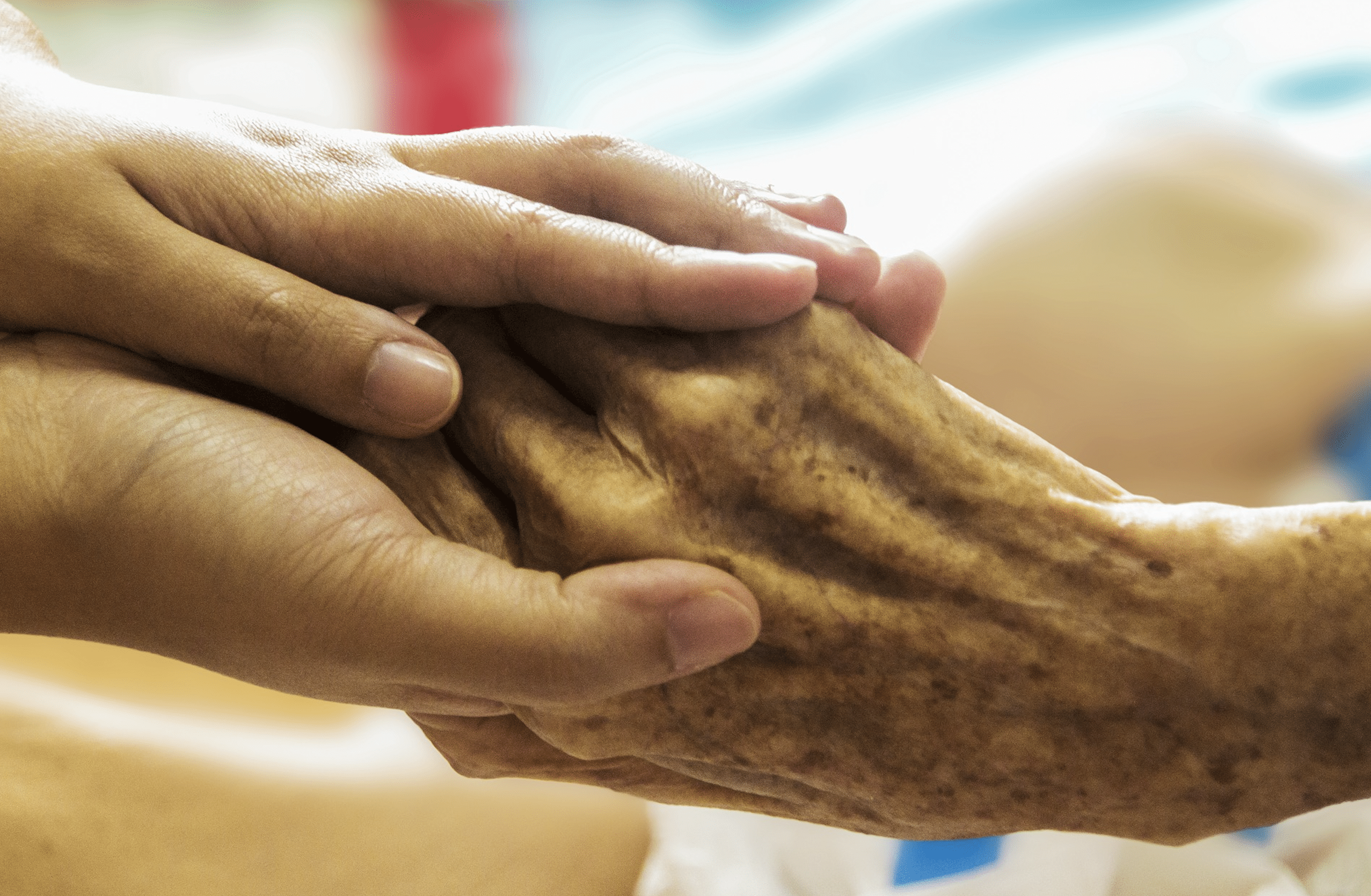
How to Process a Death Anniversary
Directly after losing someone close to us, we often receive an overwhelming wave of support. But what about a year later on the death anniversary? Two years later? Ten? Sometimes it feels like the world moves on, while the presence of the person you lost is still very real to you.
Occasions that directly remind us of the reason we’re no longer with that person can be incredibly difficult. Unfortunately, facing and coping with this reality is inevitable.
A death anniversary can feel devastating and lonely.
But, it doesn’t have to be that way.
What is a death anniversary?
A death anniversary is just what the name implies: an anniversary of someone passing away.
Death anniversaries have a strong cultural history in many Asian countries and among Asian communities worldwide. These sorts of anniversaries are often influenced by or connected to spiritual or religious customs as well as tradition.
The term “death anniversary” is very versatile, though. A death anniversary may contain these elements of traditional culture, like prayer or ancestor worship, or it may not.
The key element of a death anniversary is that it allows the living to process their grief, promote healing, and find peace.
A death anniversary can take place on a monthly basis, a yearly basis, or whatever feels right for you. Over time, the way that you approach a death anniversary will likely change as the grief that comes with losing someone evolves.
Why choose to acknowledge a death anniversary?
It is true that grief is an incredibly complex emotion that can be hard to manage and even harder to understand. For trying to limit grief on a day-to-day basis, it indeed might be helpful to avoid triggers that create a negative emotional response.
So, why acknowledge a death anniversary then?
Acknowledging death and the reality that comes with it, as difficult and painful as it is, is actually a very important part of healing and dealing with grief long-term.
A death anniversary gives you the chance to fully process, reflect upon, and make peace with the thoughts and emotions you have surrounding the death of a loved one. Maybe you avoid these memories and thoughts on a daily basis, but a death anniversary is a chance to make those memories the focus. In this way, you can figure out how to best handle them.
Long-term, unresolved grief can be detrimental. It can even end up damaging your mental health significantly over time. The underlying mental strain of these intense emotions can predispose an individual to other side effects. For example, a grieving mind might experience more intense emotions.
Those who continuously struggle with significant, debilitating grief may benefit from speaking with a mental health professional.
It can be scary to deal with grief and mental health, and just as scary to watch someone you care about do the same. A useful helpline for mental health emergencies of all sorts is SAMHSA’s National Helpline (1-800-662-HELP). SAMHSA is the Substance Abuse and Mental Health Service Administration within the U.S. Department of Health & Human Services, and the helpline can offer a variety of resources to support those who need it (including yourself).
Celebrating and Remembering Life
Another related post-death option some families choose is a celebration of life service. By focusing on remembering someone’s life rather than their death, you can turn a death anniversary into a positive experience.
If you’ve just recently lost someone close to you, or if you’re simply curious about what a celebration of life service is, why they’re held, and what they’re like, check out our guide to them here.
An important thing to remember throughout the entire process of thinking about/planning for a death anniversary is to take care of yourself.
The sort of emotions and memories that come along with actively thinking about death and related topics can be very draining. Be sure to ask for help from others if you feel like you need it.
Whether or not you choose to celebrate a death anniversary with a celebration of life service, consider including other loved ones in your death anniversary ritual. You can share stories about the deceased, talk about accomplishments, or whatever else brings you joy and comfort.
You will likely find it much more healing and beneficial to focus on the good things you loved about the person you lost rather than the fact that they are gone.
One Year Death Anniversary
For many people, one of the most significant (and sometimes the most emotionally challenging) moments in their grieving process is the first anniversary of someone’s death.
One year death anniversaries can be especially emotional for lots of reasons. They’re often a direct reminder of the events that took place on said day in the past, which means they can be full of painful memories and feelings.
It may feel like a shock to realize you have been without this person for one year.
Being aware of this potential reality is a good first step for managing it. Now is a good time to reach out to family, friends, and anyone else who was special to the deceased, both for your sake and for theirs. Building a support system is an important part of confronting difficult emotions.
Likewise, if you are caring for someone processing grief, you may be an important part of their emotional support system. You might find it helpful to preemptively consider the ways you can offer support and care during this time.
It is never too late to reunite with a family member or friend who has lost someone. As previously mentioned, support often wanes with time, but grief can stick around for a lifetime. Don’t be afraid to reach out and share the burden.
One Year Death Anniversary: What to Say
Whether you’re experiencing grief yourself or trying to support someone else, it can be difficult to put feelings into words. Sometimes, grieving people might not want to talk much, if at all. So how do you know what to say to be helpful and comforting?
Though every person is different, here are some general tips for discussing grief with others, whether it be your own or someone else’s:
- Encourage the grieving person to express their emotions freely. Sometimes the phrases we say to support someone emotionally (things like “stay strong”) can actually stifle emotions. Instead of repressing difficult feelings, it’s best to find healthy ways to cope with and express them.
- If you’d like to steer the conversation toward something happier, focus on the positive qualities and memories of the deceased rather than encouraging someone to “look on the bright side.” Sometimes, it really seems like there is no bright side; identifying specific positive ideas can be much more effective if this is your goal.
- Even if you didn’t know the deceased well or even at all, this is still a great way to communicate that you empathize with the pain of the grieving.
- If you’re struggling to find the words to say, don’t feel as though you have to conjure up something artificial. Sometimes a simple “I’m so sorry,” can be effective enough in conveying that you understand the gravity of the situation.
- A great way to show your support if you’re struggling with words or dialogue is with actions. You can show you care by bringing a meal to someone who’s grieving, for example, or sending them a thoughtful hand-written card.
- Don’t feel like you have to say anything; maybe this person just needs you to listen. Your caring presence may be enough to make someone feel less alone, even if it’s just for a little while.
- Grief is complex. Never rush someone to “get over” a loved one who has passed on. They may never “get over” it, and that’s perfectly natural. Sometimes grief is described as an invasive, black ball, that bumps into the walls of a small room. On some days, the ball is massive, and it seems like no matter where you move or look, the ball bumps into the edges of the room and causes pain. Other times, the ball is small, and it doesn’t cause problems. But it never completely goes away.
- Make sure the grieving person is properly cared for. Grief may cause us to forget to eat, sleep, or drink water. Take care of the grieving person on this day. Some say that the only “cure” for grief is to drink water because if you simply drink water and give it time, the grief will become more manageable. This comforting advice takes some of the pressure off. Grief demands to be felt. If you love someone who is coping with a death anniversary, make sure they don’t have to worry about anything else, just grieving.
- Draw a warm bath for this person
- Make them a big dinner with comfort food
- Watch a movie with them or read to them
- Keep them comfortable with blankets or air conditioning
- Put some comforting music on
- If they have errands or chores on this day, take care of them for them
- Clean up for them and keep their space tidy
- Write a little card or letter to them
- Remain calm, and maybe even make some jokes or tell stories to distract your loved one and make them smile
Ideas for Commemorating a One Year Death Anniversary
Whether you’re helping someone else make a death anniversary something to remember or doing it for yourself, it’s good to be prepared and come up with some ideas ahead of time. This allows you to make the most of the day itself and ensure it’s as positive as it can be!
Here are some ideas for coping with a death anniversary:
- If the deceased has been buried, visit their gravesite. If they have been cremated, you might scatter some of their ashes or take the ashes to a place that was special to them.
- Write something for them, like a poem or a letter.
- Invite over loved ones for a shared meal. Have any kind of food you want: comfort food, a potluck, or even the favorite food(s) of your lost loved one.
- Bring flowers, wreaths, etc. to a place that is special to you/the person you have lost. This could be their gravesite if they have one, or it could be something simple, like a favorite park bench.
- Listen to music that reminds you of the person you’ve lost. It could be happy or comforting music, or it could be that person’s favorite music. Whatever feels right.
- If you are religious, say a prayer for your loved one, or simply find some quiet time to meditate without any technology or obligations
- You might also find comfort in other ways, like gathering with members of your church or having a small, special service to commemorate the deceased.
- If the anniversary is painful and you’d prefer something that will distract you or take your mind off of things as much as possible, try something new. Travel to that place you’ve always wanted to go to. Try out that new restaurant down the street.
- Have a toast to your loved one. You could do this alone if you’d like, but it’s a great idea for a gathering of family or friends.
Making a Death Anniversary Something Special
A good overall strategy for coping with the pain and grief that comes with a death anniversary is to turn the day into something positive. The point isn’t to distract yourself so much that you forget the significance of the day, but instead to promote healing and acceptance.
There are lots of ways you can accomplish the goal, some of which we just discussed above. Times of emotion are great times for creativity and expression, so don’t be afraid to allow yourself to do something special.
Our next few sections will give you some ideas of different things you might incorporate into a plan for commemorating a loved one on their death anniversary.
Death Anniversary Quotes
Quotes are a great thing to reflect on, incorporate into art or writing, and share with others.
These are merely suggestions, but you might find it especially meaningful to seek out quotes from someone important to the deceased (a writer, actor, etc.).
Quotes About Overcoming Grief
- “When we lose someone we love, we must learn not to live without them, but to live with the love they left behind.” -Anonymous
- “Grief is like the ocean; it comes in waves, ebbing and flowing. Sometimes the water is calm, and sometimes it is overwhelming. All we can do is learn to swim.” -Vicki Harrison
- “Moving on doesn’t mean you forget about things. It just means you have to accept what’s happened and continue living.” -Erza Scarlet
- “Even now, as broken as you may feel, you are still so strong. There’s something to be said for how you hold yourself together and keep moving, even though you feel like shattering. Don’t stop. This is your healing. It doesn’t have to be pretty or graceful. You just have to keep going.” – Maxwell Diawuoh
Quotes About Strength & Processing Emotions
- “There is a sacredness in tears. They are not the mark of weakness, but of power. They speak more eloquently than ten thousand tongues. They are messengers of overwhelming grief… and unspeakable love.” -Washington Irving
- “You will never be able to escape from your heart. So it is better to listen to what it has to say.” -Paulo Coehlo
- “You gain strength, courage, and confidence by every experience in which you really stop to look fear in the face. Do the thing you think you cannot do.” -Eleanor Roosevelt
- “Be brave enough to heal yourself even when it hurts.” -Bianca Sparacino
Quotes for Comfort and Positivity
- “They that love beyond the world cannot be separated by it. Death cannot kill what never dies.” -William Penn
- “To live in hearts we leave behind is not to die.” -Thomas Campbell
- “Make happiness a priority and be gentle with yourself in the process.” -Bronnie Ware
- “Never bend your head. Always hold it high. Look the world straight in the eye.” -Helen Keller
Death Anniversary Messages
If you find yourself wondering how to reach out to others to offer your condolences, you’re definitely not alone. It’s no easy task to convey a lot of emotion in one small message!
There are lots of ways you can convey your thoughts to someone through a message these days. If they’re especially far away, you can even send a text message.
If you are sending a card and want to include something thoughtful inside, below are some examples for you to consider. You might also find it useful to consider some of the quotes we’ve listed above.
Remembrance Messages for a Death Anniversary
- “I know today is a challenging and tough day. But, I think [Name of Deceased] would be proud to see how far you’ve come and just how strong you are.”
- “Today, both you and [N.O.D.] are in my thoughts/prayers.”
- “Thinking of [N.O.D.]. I’m sure you are too. If you need to talk about it, I’m here.”
Uplifting/Positive Messages for a Death Anniversary
- “Today might be a rough day, but I have total confidence in your ability to get through it. You are strong. Things will get better.”
- “My heart is with you in this time of sadness and grief. If you need help putting a smile on your face, just let me know.”
- “I hope/pray that on this day, which I know is surely hard, you will find the happiness and the joy that you deserve.”
Death Anniversary Prayers
If you are religious, you might want to consider incorporating prayer into a death anniversary. You can choose any quote, line of text, or prayer you feel is appropriate. Even if you are not religious, you might find comfort in engaging in spirituality of some kind.
Because everyone and every religion is different, this element of your day is completely up to you. It’s a good idea to seek out prayers that are specifically important or meaningful to your religion/denomination if that idea is comforting to you.
General Prayer Ideas
- What should I pray for/about?
- Healing, strength, and good fortune
- The love and joy associated with the deceased
- The safety and health of loved ones
- Family and friends, living or dead
- If you’d like to set up an area to pray or otherwise feel in tune with your spirituality, you might include:
- Candles
- Photos of your loved one
- Flowers or plants
- Blankets, pillows – comfort objects
Bible Verses
- Revelation 14:13: “And I heard a voice from heaven saying, ‘Write this: Blessed are the dead who die in the Lord from now on.’ ‘Blessed indeed,’ says the Spirit, ‘that they may rest from their labors, for their deeds follow them!’”
- Matthew 11:28-30: “Come to me, all you who are weary and burdened, and I will give you rest. Take my yoke upon you and learn from me, for I am gentle and humble in heart, and you will find rest for your souls. For my yoke is easy and my burden is light.”
- Romans 14:8: “For if we live, we live to the Lord, and if we die, we die to the Lord. So then, whether we live or whether we die, we are the Lord’s.”
- Matthew 5:4: “Blessed are those who mourn, for they will be comforted.”
Music, Art, and More
On a death anniversary, music can be a great emotional cure.
You might prefer to listen to the type of music (artists, genre, etc.) that the deceased enjoyed. If that option seems too overwhelming, you can always seek out calming, uplifting, or otherwise positive music.
Creating art of any kind is a great way to express emotions during this time. Consuming art – writing, poetry, visual art, film, etc. – can also be very therapeutic. Again, following what the deceased liked is a great option here.
If you are creatively inclined and want to make something, you might try:
- Draw or paint a portrait of your loved one
- Recreate a special moment from your past together
- Write a story, a memorial, or whatever reminds you of your loved one
- Play an instrument; play their favorite songs or pieces
- Sing their favorite songs
- Create a physical memorial: it could include photos, objects, candles, flowers, or other decor to make it look nice
Ultimately, your goal should be to find some form of expression that gives you the relief and comfort you deserve.
Conclusion
As we’ve explored, there are lots of ways to approach a death anniversary.
It seems like a day that’s sure to bring pain, but it certainly doesn’t have to be. For many people, death anniversaries can be days of great healing and personal growth. It’s also a semi-constant reminder of the life and accomplishments of your loved one.
At first, grief may feel unbearable. You think about the person you lost every day, and you miss them. Then time goes by, and one day you realize that you haven’t thought about them in a little while. Later in life, you may realize that you don’t think about this person for months at a time. When that stage of your grief comes, you may welcome their death anniversary as a chance to remember them and honor them.
You now have the tools to approach these challenges with thoughtfulness. Remember to do what feels right to you; take care of yourself, and be kind to yourself.
Sources:
- SAMHSA National Helpline, Substance Abuse and Mental Health Services Administration, www.samhsa.gov
Related Articles

Understanding the Differences Between Wills and Trusts
This article has been reviewed by a practicing attorney in 2020 This content is not intended to be a substitute for professional legal advice. Always seek the advice of an attorney or another qualified legal professional with any questions you may have regarding your situation. Choosing the proper estate plan for you and your family […]

Hospice Criteria and Eligibility
Hospice isn’t a topic that’s enjoyable to discuss, but it is important, especially if your loved one is an elderly dealing with a terminal illness and is expected to need hospice services in the near future. As a caregiver, you must familiarize yourself with the hospice criteria and eligibility requirements so that you can prepare […]

Gone Too Soon: 100 Quotes About Unexpected Death
Death is a topic that we often avoid, but it is something that we all have to face at some point in our lives. The death of a loved one can be especially difficult, and when that death is sudden and unexpected, it can be even harder to cope with. In this post, we will […]

20 Sympathy Messages for the Loss of a Mother
Grieving the loss of a mother can be one of the most difficult experiences a person goes through. Finding words to take some comfort in, or to say to someone who has lost such a special person in their life can be challenging. In this blog post, we’ve gathered a list of sympathy messages for […]

28 Common Symbols of Death and Their Meaning
Death is a mysterious force that touches all of us at some point in our lives. Though we may not understand it, we are drawn to symbols and images that represent death. Why do we find these symbols so intriguing? In this blog post, we will explore 10 common symbols of death and what they […]
